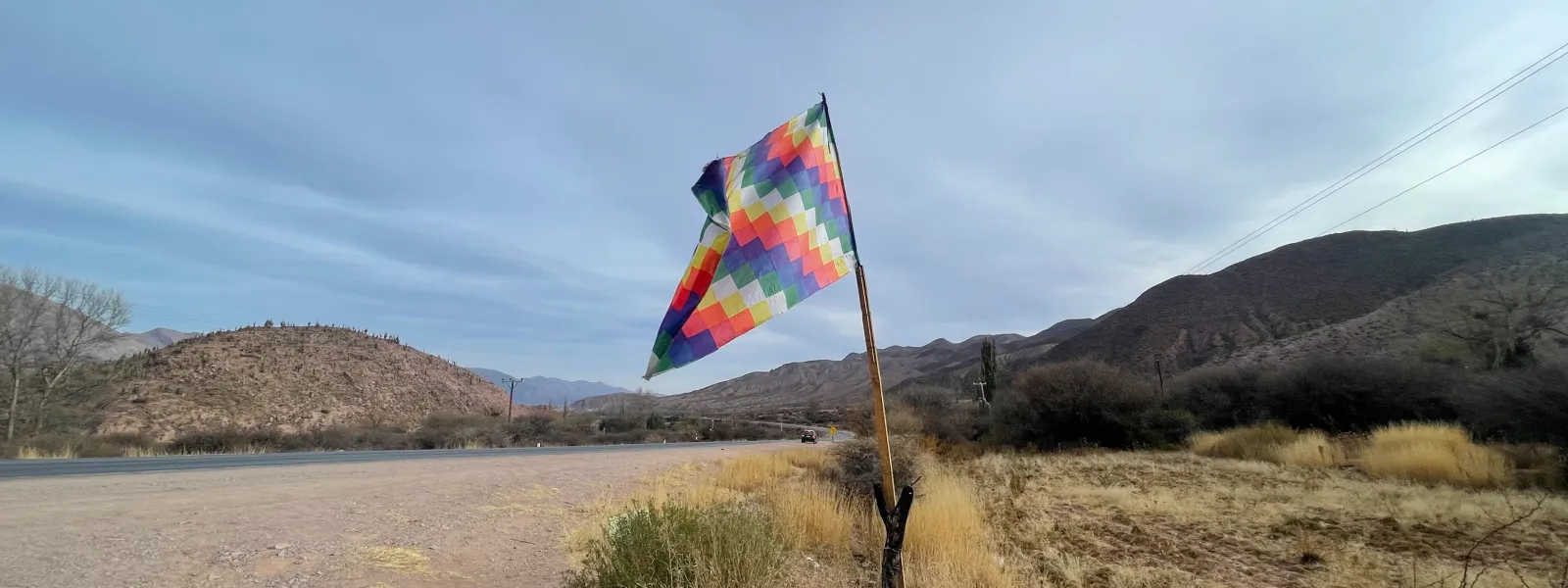
Argentina: the scramble for lithium threatens the rights of Indigenous Peoples in Jujuy
Photo: David Mejia/HRLC.International civil society organisations with extensive experience in the defence of the environment and human rights present the conclusions of an observation mission to the Argentinian province of Jujuy in August 2023 following the constitutional reform approved in June of the same year, which facilitates lithium extraction.
Paris and San Salvador de Jujuy. In a report published today, ten international civil society organisations with extensive experience in human rights and environmental issues warn that the lack of prior consultation of the 11 Indigenous Peoples of Jujuy in the approval process for the reform of the provincial constitution is incompatible with international human rights and environmental standards.
The report also denounces that the new Jujuy Constitution authorises productive activities on public lands, which opens the door to the implementation of extractive projects in Indigenous ancestral territories, without guaranteeing prior, free and informed consultation with the communities. It also approves the large-scale use of water, which facilitates the use of an essential resource for the survival of Indigenous Peoples for the exploitation of lithium, an activity with a high water footprint.
The constitutional reform process is framed in a context of mining deployment in the high Andean wetlands of Jujuy, whose watersheds are located in the area known by the mining industry as the "lithium triangle", located on the borders of Argentina, Bolivia and Chile. This area is so named because it is the largest, most easily extractable and economically profitable lithium reserve in the world.
"We denounce the permanent and disproportionate restriction of the right to social protest introduced by the Jujuy constitution - in particular the general prohibition of road and street blockades, which are not only a legitimate form of peaceful demonstration, but are also protected by international law," the organisations point out.
The report also highlights the testimonies of victims of police repression, who suffered arbitrary detentions and serious physical injuries caused by the excessive and unjustified use of force. It also documents the cases of protesters who are currently facing arbitrary and disproportionate criminal proceedings for participating in and promoting public demonstrations against the constitutional reform.
In light of the findings presented in the report, the organisations:
- Request compliance with the international obligations of the Argentinian State to guarantee the protection of the collective property of Indigenous communities over their ancestral territories, as well as to guarantee the right to water intended for human consumption and the reproduction of life.
- Urge the authorities to refrain from promoting regulations that restrict the ways, places or times in which citizens can exercise their right to demonstrate publicly.
- Make an urgent call to the judiciary to assess, based on a rigorous examination of international human rights standards, the probable unconstitutionality of the approval process for the reform and its contents.
Relationship between the events in Jujuy and the reforms promoted by Javier Milei’s government
The analysis offered in the report on what happened in Jujuy is especially relevant in the current national context because President Javier Milei’s national government has followed a similar line to the trend observed in Jujuy of promoting reforms that deepen an extractivist model in protected ecosystems of the country. This occurs while eliminating frameworks for the protection of human and environmental rights and facilitating the repression and criminalisation of legitimate protests, as detailed in the report.
Through Decree of Necessity and Urgency No. 70/2023, President Milei repealed the Land Law (26.737) on 20th December 2023, eliminating restrictions aimed at preventing land grabbing by foreign investment projects. In addition, the "omnibus" bill proposes to repeal environmental protection laws to facilitate economic activities in ecosystems such as native forests and glaciers.
These measures, similar to those implemented in Jujuy, were accompanied by disproportionate restrictions on the exercise of the right to protest. For example, on 14th December 2023, the executive approved the "protocol of anti-picketing action", which considers any demonstration that interrupts or decreases the movement of people a flagrant offence, requiring police intervention.
